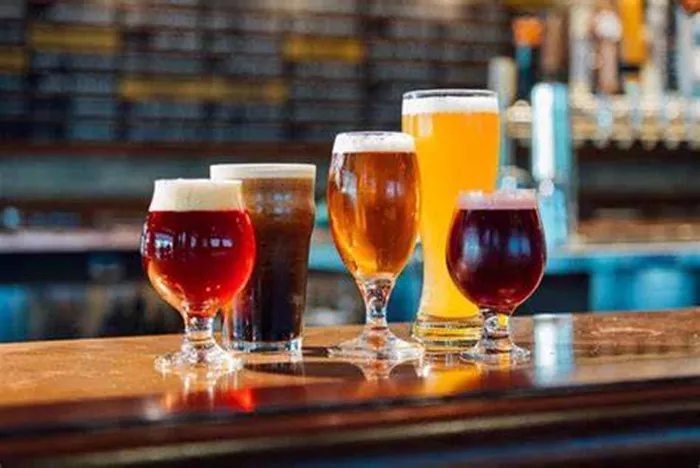When you’re not feeling well and have a cold, you might wonder if having a beer could help or hinder your recovery. In this comprehensive guide, we’ll explore the question of whether beer is a good choice when you have a cold.
What Is a Cold?
A cold is a common viral infection that affects the upper respiratory tract. Symptoms can include a runny or stuffy nose, sneezing, coughing, sore throat, headache, and fatigue. Colds are usually mild and self-limiting, but they can be uncomfortable and disrupt your daily life.
The Effects of Beer on the Body
Beer is an alcoholic beverage that contains a variety of ingredients, including water, malted barley, hops, yeast, and sometimes other additives. When you consume beer, it has several effects on your body.
1. Alcohol Content
Beer typically contains a certain percentage of alcohol. Alcohol is a depressant that can affect your central nervous system. In small amounts, it may have a relaxing effect, but in larger quantities, it can cause impairment and negative health effects.
2. Hydration
While beer is mostly water, it can actually have a dehydrating effect. Alcohol inhibits the release of antidiuretic hormone, which leads to increased urine production and can cause dehydration. Dehydration can worsen cold symptoms and make you feel even more unwell.
3. Nutritional Value
Beer contains some nutrients, such as B vitamins and trace minerals. However, the amounts are relatively small and not significant enough to have a major impact on your health when you have a cold.
The Impact of a Cold on the Body
When you have a cold, your body is already under stress. The immune system is working hard to fight off the virus, and you may experience various symptoms that affect your overall well-being.
1. Immune System Function
Having a cold weakens your immune system. Your body is focused on combating the virus, and its ability to defend against other pathogens may be reduced. Consuming alcohol, including beer, can further suppress the immune system and make it harder for your body to recover.
2. Symptoms and Discomfort
Cold symptoms such as a runny nose, cough, and sore throat can be bothersome. Drinking beer may exacerbate some of these symptoms. For example, alcohol can irritate the throat and make a sore throat worse. It can also cause congestion and make it more difficult to breathe through a stuffy nose.
3. Medication Interaction
If you are taking over-the-counter or prescription medications to treat your cold, it’s important to be aware of potential interactions with alcohol. Some medications can have adverse effects when combined with alcohol, such as increased drowsiness, dizziness, or liver damage. Always check the labels and consult a healthcare professional if you’re unsure.
Potential Benefits of Beer (If Any)
While beer is generally not considered a beneficial choice when you have a cold, there are a few possible arguments that could be made in its favor.
1. Relaxation and Stress Reduction
Having a cold can be stressful and uncomfortable. A small amount of beer may have a relaxing effect and help you unwind. However, it’s important to be cautious and not overdo it, as excessive alcohol consumption can have negative consequences.
2. Social Interaction
If you’re feeling isolated due to your cold, having a beer in a social setting (while following appropriate health guidelines) may provide a sense of connection and boost your mood. However, this should be done in moderation and with consideration for your health.
See Also: What Is the Best Beer for Beginners?
Alternatives to Beer When You Have a Cold
If you’re looking for something to drink when you have a cold but don’t want to have beer, there are several better options available.
1. Water
Staying hydrated is crucial when you have a cold. Water is the best choice as it helps flush out toxins, keeps your body hydrated, and supports the immune system. Drink plenty of water throughout the day to ease cold symptoms and promote recovery.
2. Herbal Teas
Herbal teas such as chamomile, peppermint, and echinacea can be soothing and may have immune-boosting properties. They can help relieve congestion, soothe a sore throat, and provide comfort when you’re not feeling well.
3. Fruit Juices
Freshly squeezed fruit juices are rich in vitamins and antioxidants that can support your immune system. Orange juice, for example, is high in vitamin C, which can help boost your immune function. However, be mindful of the sugar content in some juices and choose unsweetened varieties if possible.
4. Broths and Soups
Warm broths and soups can be comforting and hydrating. They can also provide nutrients and help soothe a sore throat. Chicken soup, in particular, has been known for its potential benefits in relieving cold symptoms.
Conclusion
In conclusion, beer is generally not a good choice when you have a cold. While it may offer some temporary relaxation or social benefits, the negative effects on your immune system, hydration, and symptoms outweigh any potential advantages. Instead, focus on staying hydrated with water, drinking herbal teas, enjoying fruit juices, and consuming warm broths and soups to support your recovery. If you have any concerns about your cold or its treatment, consult a healthcare professional.
You might be interested


